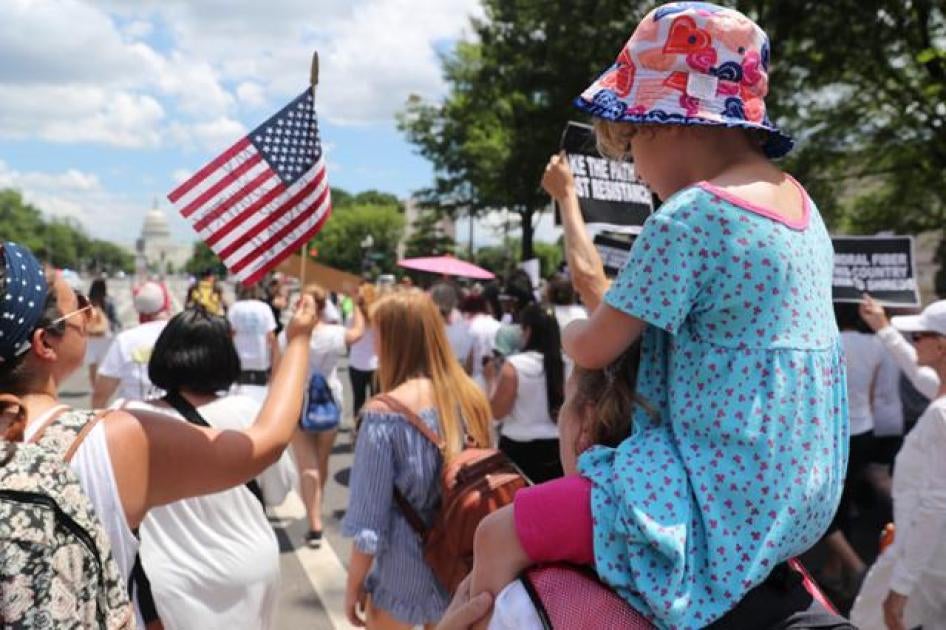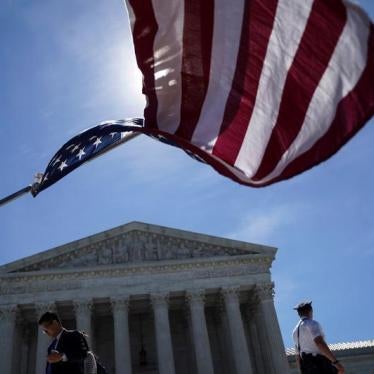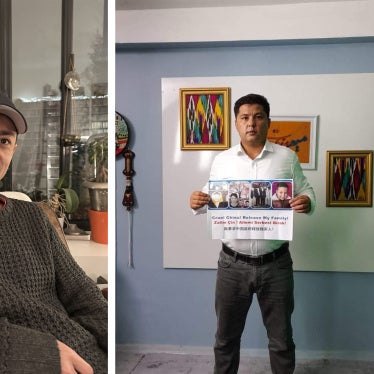“Give me your tired, your poor, your huddled masses yearning to breathe free.” This quote on the Statue of Liberty greeted millions of prospective American citizens for generations, who came to this nation seeking a better life for themselves and their families. It was unclear, until this moment, that such a promise of freedom came with an expiration date.
The Trump administration, enabled by a majority of the Supreme Court, has made it clear that the promise no longer holds for many immigrants. Last week, the administration’s “zero tolerance” policy manifested itself when hundreds of immigrant families — most from Latin America, and most of them people of color — were separated at the U.S. border. Then the administration slightly changed course to demand, instead, wholesale family detention.
This week, the Supreme Court, with its 5-4 ruling in Trump v. Hawaii, has upheld the president’s travel ban restricting entry for immigrants from seven, mostly Muslim-majority nations. While many people will consider these issues from a legal perspective, we miss the mark if we don’t also discuss them from a race and tolerance perspective.
The Trump administration contends that the zero tolerance and travel ban policies are meant to ensure that our nation is secure from terrorism and an influx of criminals. Yet, this anxiety over terrorism and crime seems to arise overwhelmingly when speaking of people from certain nations — namely, countries where the immigrant population is poor and brown, or where the religious beliefs espoused are from the Muslim faith. This administration’s approach to protecting America from those who would do harm is merely an attempt to close the door of opportunity to people whose ethnicity, race and religion do not match its version of what America should look like.
This was made clear almost from the moment Trump threw his hat in the ring for the presidency. He stated publicly, on numerous occasions, that he wanted to ban Muslims from the United States. He has said that immigrants from certain countries, those populated by Hispanic people or people of color, are the nations about which we should be the most concerned — countries whose immigrants, in his view, would detract from, rather than uplift, the United States.
In fact, the president has juxtaposed immigrants from the nations cited in the travel ban and targeted by the zero tolerance policy — along with African and Caribbean nations — to those from European nations whom he clearly thinks are more desirable newcomers. These statements testify to the real motive behind his policies, which show little objective evidence of producing a national security benefit.
We should not allow such discrimination to define this nation in the 21stcentury; nor can we fail to connect these circumstances to our history. There are well documented instances during which the United States government discriminated based on ethnicity and religion, under the guise of protecting national security. The order issued during World War II that allowed for the internment of thousands of Japanese-Americans was, as Justice Sonia Sotomayor pointed out in her dissenting opinion on the travel ban decision, “rooted in dangerous stereotypes about a particular group’s supposed inability to assimilate and desire to harm the United States.”
Even within our own criminal justice system, racial and ethnic profiling have resulted in disparate treatment of people of color, whom the government has deemed to be more dangerous or threatening to the security of the community. While the circumstances surrounding these instances are different, the root of each is the same — intolerance, stereotyping, and a lack of acceptance. These ingredients position the United States as an example to the rest of the world of what true intolerance looks like.
If we hope to continue to be a nation as good as its promises, we must recognize that the motives behind the travel ban and policies such as zero tolerance have no place here. We must seek to find a better way to provide access and opportunity for all, regardless of race, ethnicity and religious beliefs. That is the true promise of America.








